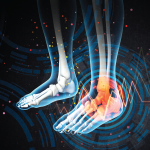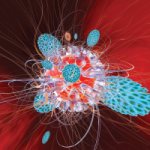The second annual ACR Division Directors’ Conference took place in Chicago on March 10–11. The conference opened with a presentation on the use of the ACR’s Rheumatology Informatics System for Effectiveness (RISE) Registry in academic medical centers by Salahuddin “Dino” Kazi, MD, from UT Southwestern Medical Center, and Jinoos Yazdany, MD, MPH, from the University of California…

The ACR, ARHP Keep Members, Patients’ Priorities on Congressional Legislative Slate
We can’t change the direction of the wind, but we can adjust our sails. The origin of this proverb is unclear. Some citations link it to ancient Hindu philosophers, and others suggest the origin may be closer to home (i.e., Jimmy Dean or Dolly Parton). Nonetheless, the sentiment is apt: We are living in an…

Demand for Arthritis Care in America Outstrips Supply of Practicing Rheumatologists
May is National Arthritis Awareness Month. The ACR is committed to ensuring that arthritis and rheumatologic diseases are at the forefront of public awareness—and that better, safer treatments reach Americans in need. Fortunately, the federal government is also doing its part and has just released a major report on the national impact of arthritis. A…

Fellows’ Forum: Why Rheumatology Fellows Should Get Involved with Advocacy
Introduction Interest in rheumatology continues to grow, with more than 240 new adult and pediatric fellows to begin their training in the coming academic year. Given the broad and diverse career opportunities, it is an ACR goal to help guide trainees in their career decisions and professional development. Rheumatology fellowship often marks the transition from…

Studies Highlight Risk of Damage from Lupus Treatments
WASHINGTON, D.C.—Conference goers who braved the final day of the 2016 ACR/ARHP Annual Meeting were awarded for their stamina by learning about issues relating to the damage caused by systemic lupus erythematosus (SLE) during the session Systemic Lupus Erythematosus—Clinical Aspects and Treatment V: Damage and Morbidity. Minimizing Damage: Early Use of GC-Sparing Strategies Jayne Little,…
Biomarkers, Genetic Clues to Higher Cardiovascular Disease Risk in Patients with Lupus
WASHINGTON, D.C.—Experts at the 2016 ACR/ARHP Annual Meeting session, Systemic Lupus Erythematosus—Clinical Aspects and Treatment IV: Biomarkers, reported on a number of recent studies showing advancement in our understanding of the disease mechanisms underlying systemic lupus erythematosus (SLE) that place these patients at risk for cardiovascular disease (CVD) and other comorbidities. Mechanisms of CVD Risk…

Effectiveness of Novel Therapies for Cutaneous SLE Explored
WASHINGTON, D.C.—A new, humanized anti-BDCA2 monoclonal antibody can trigger inhibition of the production of interferon, cytokines and chemokines derived from plasmacytoid dendritic cells in patients with cutaneous systemic lupus erythematosus (SLE), according to research presented at the 2016 ACR/ARHP Annual Meeting. The findings were discussed during a session on SLE treatment, drug adherence and the…

Drug Reduction Strategies, Disease Control for Patients with RA in Remission
WASHINGTON, D.C.—Clinical aspects of managing patients with rheumatoid arthritis (RA) in remission were discussed by a panel of experts at the 2016 ACR/ARHP Annual Meeting during the session titled Rheumatoid Arthritis—Clinical Aspects IV: Managing Patients in Remission. Among the issues raised were strategies to taper or discontinue biologic therapies, as well as clinical predictors of…

Human Immune System Likened to Model of Military Efficiency
WASHINGTON, D.C.—Speaking at the 2016 ACR/ARHP Annual Meeting in a session titled ARHP: Immunology Boot Camp I: Basis of Targeted Therapy, a rheumatologist and immunology expert gave a guided tour of the immune system, described what can go wrong with it and outlined what physicians can do when it does. Troy Torgerson, MD, PhD, associate…

Biosimilar Drugs Raise Questions around Treatment Efficacy, Quality, Safety
WASHINGTON, D.C.—Challenges abound for the manufacturing of biosimilar drugs—from their sheer size compared with small molecule drugs to the unknowable proprietary aspects of the originator drugs—an expert said at the 2016 ACR/ARHP Annual Meeting in a session titled Immunology Update: Biologic Agents: From Nature to Protein Engineering to Biosimilars. Above all, because biosimilars are copies…
- « Previous Page
- 1
- …
- 7
- 8
- 9
- 10
- 11
- …
- 43
- Next Page »